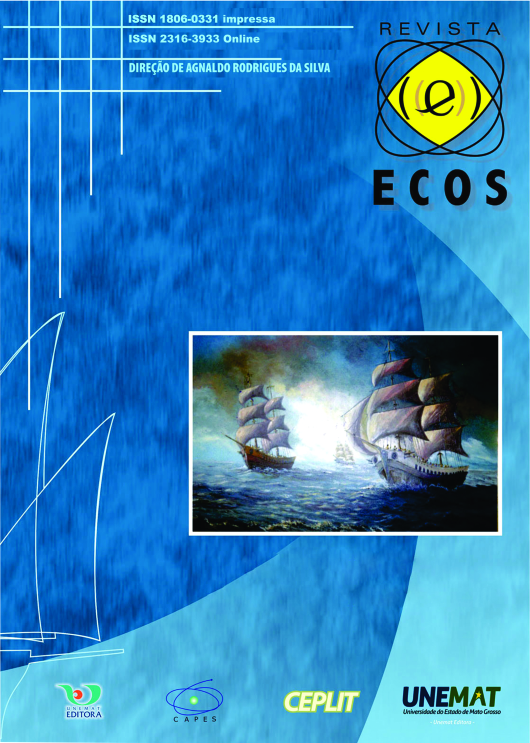TASK-BASED SYLLABUS DESIGNS AND COGNITIVE ASPECTS IN L2 PERFORMANCE
Resumo
This article reviews some issues on cognitive aspects of task-based syllabus designs, particularly based on two studies (ROBINSON, 2001; SKEHAN & FOSTER, 2001) that deal with cognitive accounts of task-based designs. First, I will focus on contrasting positions of these two papers concerning attentional resources. Second, I will present some empirical results of studies on the effects of task difficulty and conditions. Third, I will show pedagogic sequencing of tasks. Fourth, I will display the measures of three dimensions of task performance, and the measures of task difficulty. Finally, I will close the article with a call for longitudinal studies to investigate second language performance and learning.
Downloads
Referências
BERGSLEITHNER, J. M. Working memory capacity, noticing, and L2 speech production. PhD dissertation. Florianópolis, 2007. 153 pages. Doutora em Letras: Língua Inglesa e Lingüística Aplicada. Universidade Federal de Santa Catarina.
BERGSLEITHNER, J. M. Cognitive Aspects Of Task-Based Syllabus Designs. Revista Língua & Literatura. Frederico Westphalen: URI, v. 10, p. 15, p. 9-18, 2008.
BERGSLEITHNER, J. M. Linguagem oral e aspectos cognitivos em Linguística Aplicada: ensino/aprendizagem de L2/LE através de tarefas. Revista Língua & Literatura. Frederico Westphalen: URI, v. 11, 17 p. 113-124 Dez. 2009.
BERGSLEITHNER, J. M.; GALINDO, M.; KIM, Y.; & KWONG, D. Book review: Betty Lou Leaver and Jane R. Willis, editors, 2004: Task-based Instruction in foreign language education: Practices and programs. Washington, DC: Georgetown University Press. University of Hawaii at Manoa, USA, p. 378-382, 2007.
BYGATE, M. Effects of task repetition on the structure and control of oral language. In; BYGATE, M.; SKEHAN, P. & SWAIN, M. (Eds), Researching pedagogic tasks: second language learning, teaching, and testing. Longman, 2001.
ELLIS, R. Task-based language learning and teaching. Oxford: Oxford University Press, UK, 2003.
ELLIS, R. Task-based research and language pedagogy. Language Teaching Research, USA, 4, 2000, pp. 193-220.
FOSTER, P.; SKEHAN, P. The influence of planning and task type on second language performance. Studies in Second Language Acquisition, n. 18, p. 299-323, 1996.
LEAVER, B. L.; WILLIS, R. Task-based instruction in foreign language education: practices and programs. Washington, DC: Georgetown University Press. University of Hawaii at Manoa, USA, 2004.
ORTEGA, L. Planning and focus on form in L2 oral performance. Studies Sec. Language Acquisition, 21, 1999, 109-148.
ORTEGA, L. Syntactic complexity measures and their relationship to L2 proficiency: A research synthesis of College-level L2 writing. Applied Linguistics, 24/4: 2003, pp. 492-518. Oxford University Press.
ROBINSON, P. Task complexity, cognitive resources, and syllabus design: A triadic framework for examining task influences on SLA. In P. Robinson (Ed.), Cognition and second language instruction. New York: Cambridge University Press, 2001, pp. 287-318.
SKEHAN, P. A. Framework for the implementation of task-based instruction. Applied Linguistics, n. 17. Oxford University Press, 1996.
SKEHAN, P. A. A cognitive approach to language learning. Oxford: Oxford University Press, 1998.
SKEHAN, P.; & FOSTER, P. Cognition and tasks. In P. Robinson (Ed.), Cognition and second language instruction. New York: Cambridge University Press, 2001, pp. 183-205.
PICA, T. Second language teaching and research relationships: A North American view. Language Teaching Research 1: 1997, 48–72.
WILLIS, J. A framework for task-based learning. London: Longman, 1996.

